PNY RTX 2080 Ti Blower 3DMark Suite Testing
ere we will run the PNY GeForce RTX 2080 Ti Blower through graphics-related benchmarks. These are still GPUs so we wanted to give at least a perspective on this aspect of performance.
On Port Royal, the company’s real-time ray tracing benchmark, we see a different pattern.
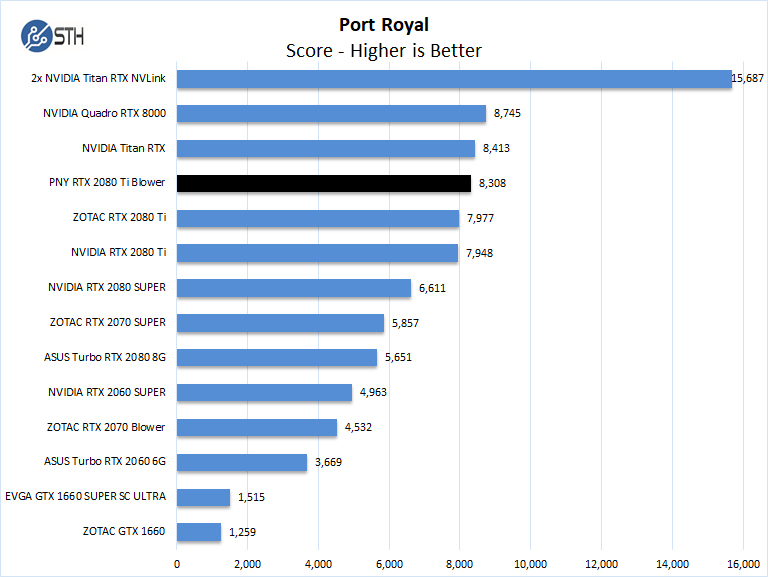
The best performer goes to PNY GeForce RTX 2080 Ti Blower.
Here are the 3DMark suite results. We will discuss them after the charts.
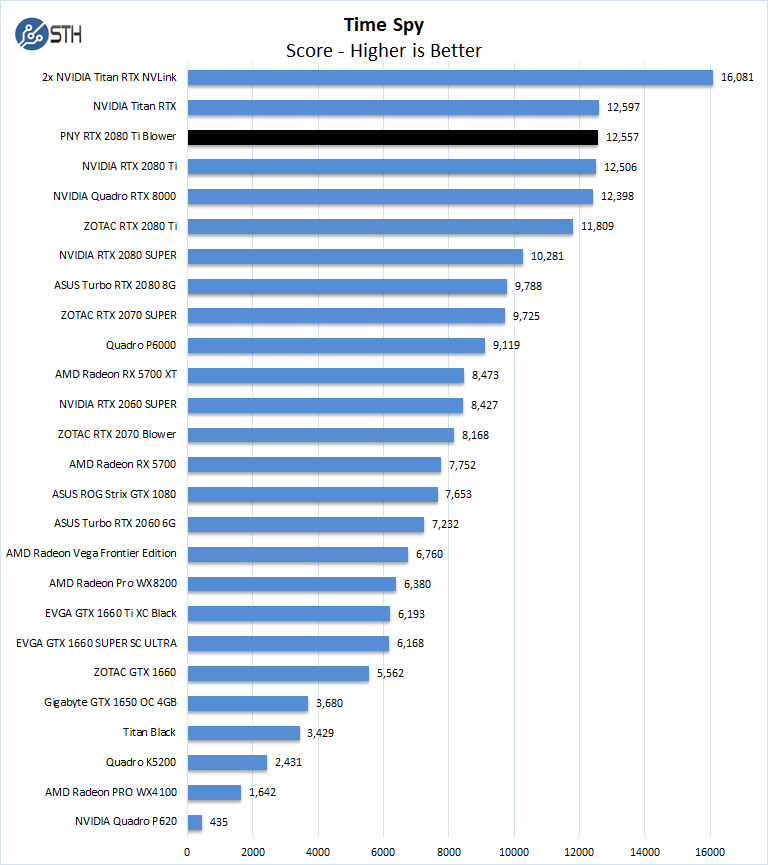
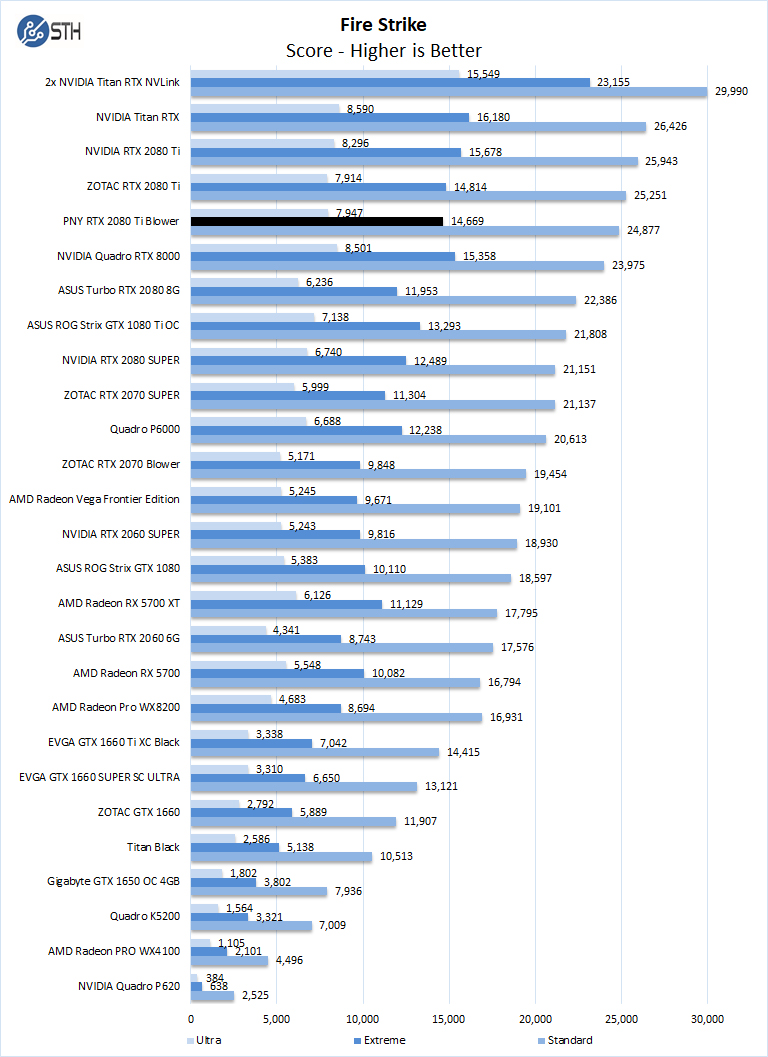
PNY RTX 2080 Ti Blower Unigine Testing
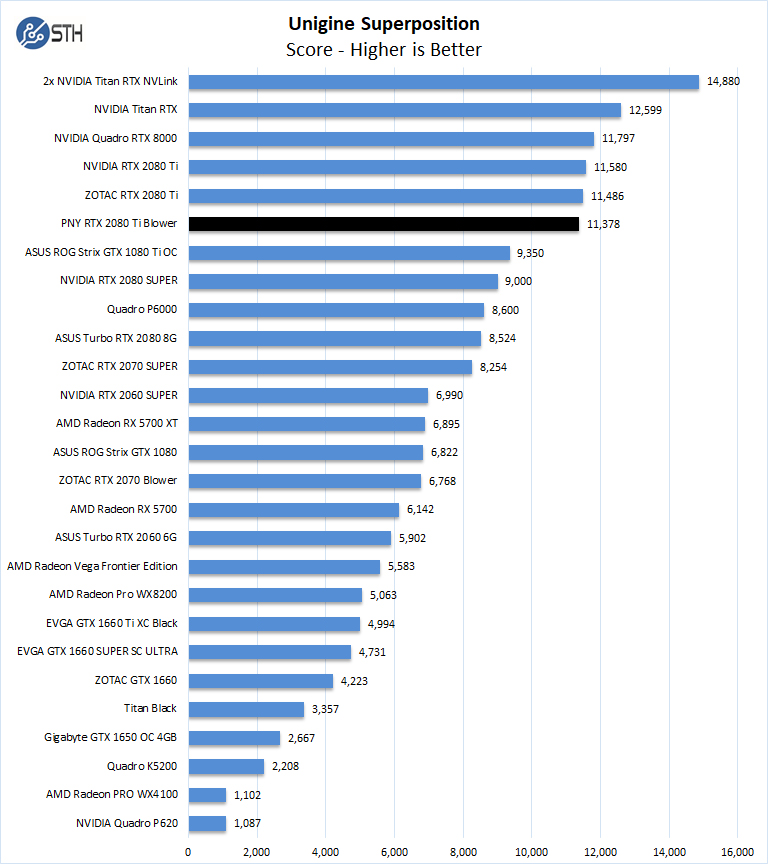
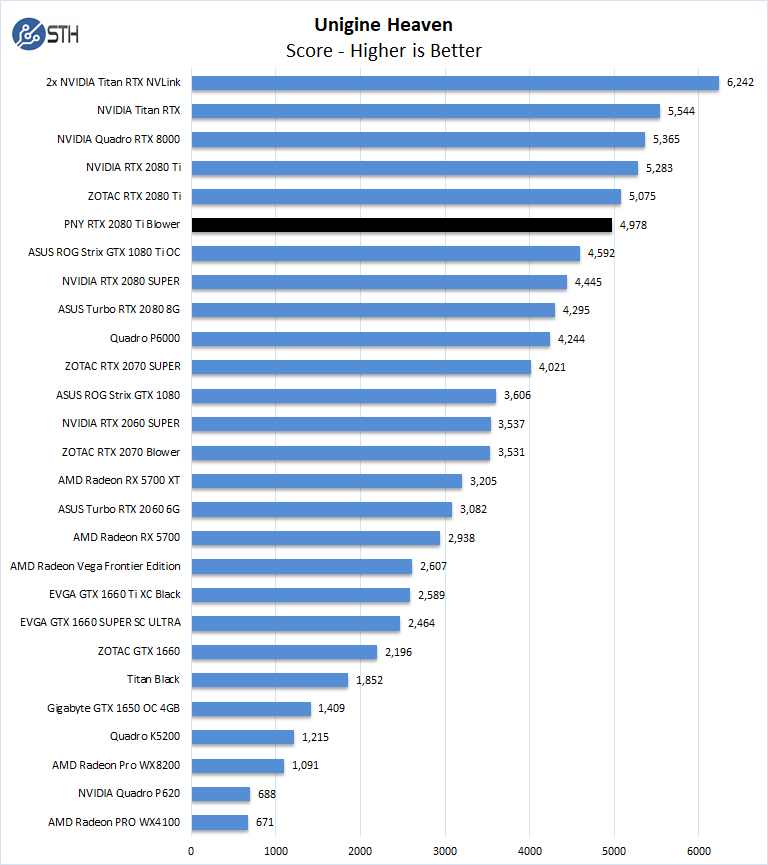
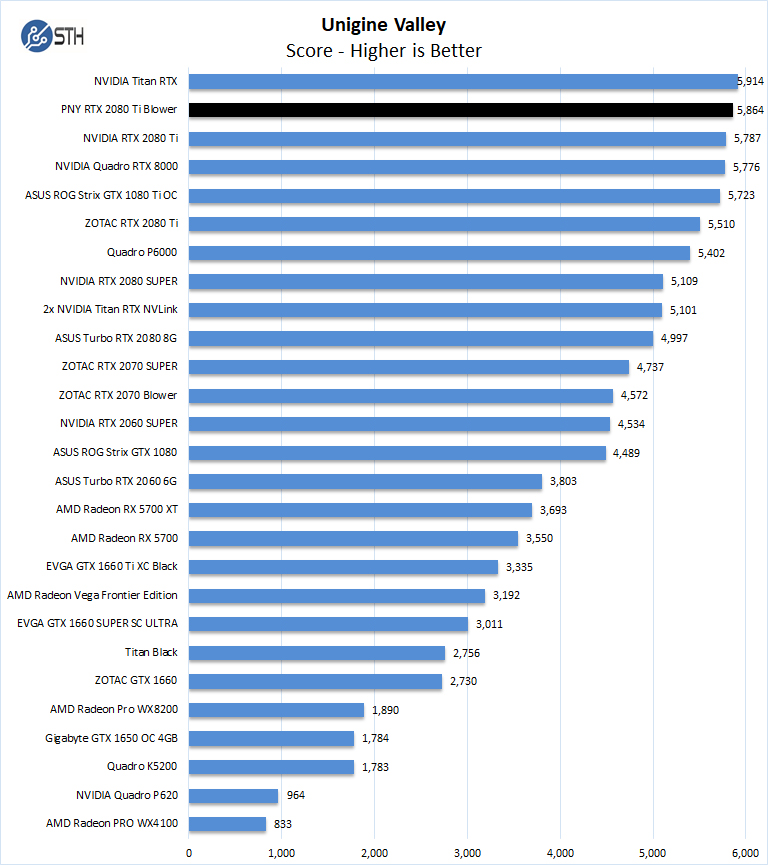
Overall we see the performance from the PNY RTX 2080 Ti Blower on par with the RTX 2080 Ti series. Sometimes it is ahead. Sometimes it is behind but the differences are not great.
Next, we are going to look at the PNY RTX 2080 Ti Blower with several Deep Learning benchmarks.

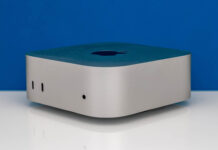
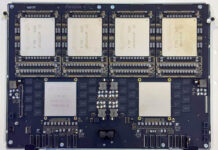

I wouldn’t touch anything from PNY with a 10 foot pole. Everything I’ve bought from them has died prematurely.
We rack 8 of the Supermicro 10 GPU servers adding about 3 racks a quarter. That isn’t much, but it’s 240 + 4 spare GPUs per quarter. We’ve been doing them since the 1080 Ti days. Our server reseller gets us good deals on other brands but says PNY doesn’t want the business as much so we get other brands.
I’m gonna be honest here. That cooler looks like they’re just using something cheap. I’d like to see PNY actually design a nice cooler like the old NVIDIA FE cards had with vapor chamber and a metal housing. Maybe if they’d do that they could keep clock speeds higher or even push them and have a better solution for dense compute like you’re saying.
If they’re not doing that, then its too easy to buy Zotac for GPU server and workstation
The octane benchmark is probably using a scene that doesn’t fit in 11GB of VRAM, hence the large difference between high VRAM cards. It doesn’t say much about the card’s actual performance since it is heavily bottlenecked by out-of-core memory accessing.
@IndustrialAIAdmin What brands and models do you run in such environment?